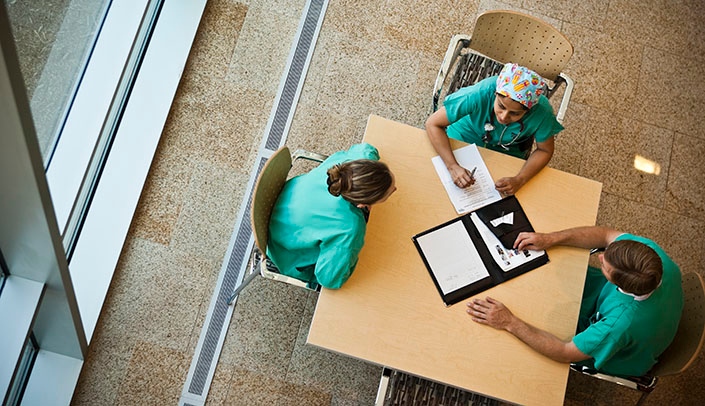The UNMC Counseling & Student Development Center will remain open even though many classes are moving to an online format. Students can schedule counseling appointments by calling our office phone line at 402-559-7276 between 8 a.m. and 4:30 p.m. or emailing office manager Pat Oberlander at poberlander@unmc.edu. Pat will help you schedule either an in-person counseling appointment or a brief phone consultation with one of our professional staff. She also has information on counseling resources for students on the UNMC campuses outside of Omaha. If you have questions regarding student disability services, the student ombudsperson program, or the student health insurance plan, please leave a detailed message on our secure line.
We realize that students may experience new sources of stress during the COVID-19 challenge. If you would like information on stress management principles and techniques, improving concentration, or student-to-student peer counseling skills, please email David Carver, Ph.D. at dcarver@unmc.edu. Here are some basic tips for dealing with the current situation.
- Practice a "quiet time" stress management method of your choice for at least 20 minutes daily. Some examples of quiet time practices include deep breathing, mindfulness meditation, prayer, or positive affirmations.
- Daily physical activity can help to ease stress and brighten your mood. Weather permitting, some direct sunlight and fresh air will provide a refreshing break from long periods of online study.
- Spend a few minutes each day reviewing your strengths and accomplishments, including your goals and values. Avoid perfectionistic self-criticism and comparing yourself to others negatively.
- Make a commitment to get 7-8 hours of high-quality sleep whenever possible. Make sure your sleeping room is dark, not too hot or cold, and free from unnecessary electronic distractions. Avoid excessive caffeine or alcohol consumption and stop studying at least 30 minutes before bedtime.
- Stay in touch with supportive friends and family, but avoid large, public crowds if possible. Look for sources of humor in your daily life. Remember the old saying, laughter is the best medicine!
- Maintain regular contact with your classmates, course faculty, academic advisor, and program Dean's office personnel. They are all here to support you, even when regular in-person meetings are not possible. And when you can, provide supports for others who appear to be struggling. We are all in this together!
